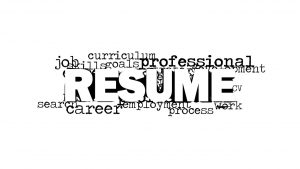Advice
Character for resume

To write about the sides of your character in your resume, you must not only look at yourself from the outside and assess yourself adequately but also interest the employer. The difficulty is also not to overdo it with praising yourself and, conversely, not to underestimate your merits.
But is it worth it at all to indicate personal qualities in employment? As a rule, the description of the sides of the character is more accepted in English-language resumes. In our country, this item may simply not be paid attention, since applicants rarely write something original in it. Therefore, specialists with experience should focus on competencies.
But for candidates with little work experience and recent graduates, the character side of a resume can play into the hands. If you can’t focus on your professional career yet, why not show your personality traits that you are serious about your new job? This will give the recruiter additional information about you, and with a competent approach to filling out this section, it may well convince him of your competence.
Character sides for a summary: general rules
- A place for your character in the resume – section “Additional information”, subsection “Personality”.
- Try to avoid clichés like “stress tolerance” and “determination”.
- Write honestly, evaluate yourself sensibly.
- Don’t get carried away, five character traits are enough.
- Specify aspects of character based on position.

About the latter in more detail. When listing character strengths on your resume, think about what exactly is required of you in a potential job that will profitably present you as a future employee of the company. In this case, you can focus on the text of the vacancy (if there is enough information there), but you should not copy everything cleanly from there. Otherwise, the employer will think that you are just making up and all these qualities are unlikely to be inherent in you.
Weaknesses of character in the resume
Job seekers are often worried about whether to indicate their negative qualities in the resume. And if so, how to do it correctly.
In fact, this is not at all necessary and often even undesirable: if you are not sure that you can turn “disadvantages into advantages” and if the employer himself did not ask you to write about negative qualities, then it is better not to indicate them.
But if you do want to give it a try, it can demonstrate your healthy self-criticism and honesty, and your willingness to get better.
Personality on the resume: examples of strengths and weaknesses
These are by no means universal examples since for each position this or that quality can become both a weakness and a strength. In the note after each example, you can read the situation for which this quality is appropriate.
Strengths:
- Always extremely calm, even in critical situations.
If your responsibilities include negotiation or team management, this will be a good advantage. But if in fact, you are a conflicted person, do not write this, as, most likely, the deception will quickly be revealed.
- Creativity. I try to approach tasks outside the box.
For designers, artists, copywriters, etc. Just be prepared for the fact that during the interview you may be asked to talk about your most original projects or show some of them in your portfolio.
- I always complete tasks on time, have repeatedly dealt with urgent deadlines.
Suitable for many professions. The same “responsibility” and “punctuality”, only more original.
- Since childhood I have been attending various courses, I am constantly engaged in self-improvement and training.
Also a good summary for most professions. This shows that even if you don’t have enough experience, you are trainable and will be productive in your responsibilities.

Weaknesses:
- Excessive emotionality. I express feelings vividly, which can lead to awkwardness in everyday life.
This “negative” quality is good for creative professions like acting.
- Lack of specialized education. But this does not affect the quality of my work, I am ready to improve.
The recruiter will already see this in the “Education” section, and you will receive an additional point for self-criticism.
- Poor communication skills. Because of this, I don’t communicate much with people and chose a “sedentary” profession.
If you are planning sedentary work outside the team, then this can be proof that you will not waste time chatting, but will actually do business.
- Too outgoing. I like to talk a lot and loudly.
This side of character for a resume is suitable for moderators and other professions that involve public speaking or communication.
Please note that the examples of personality traits for the resume are written in detail to give the recruiter enough information without writing templates. As mentioned at the beginning of the article, you should not limit yourself to “sociability”, “punctuality” and other hackneyed phrases.
Output
Write in detail, but not too verbose. Try to keep the “golden mean” between “overpraise” and “under praise”. Be ready to explain your qualities at the interview, prove them with examples from your life/career.









